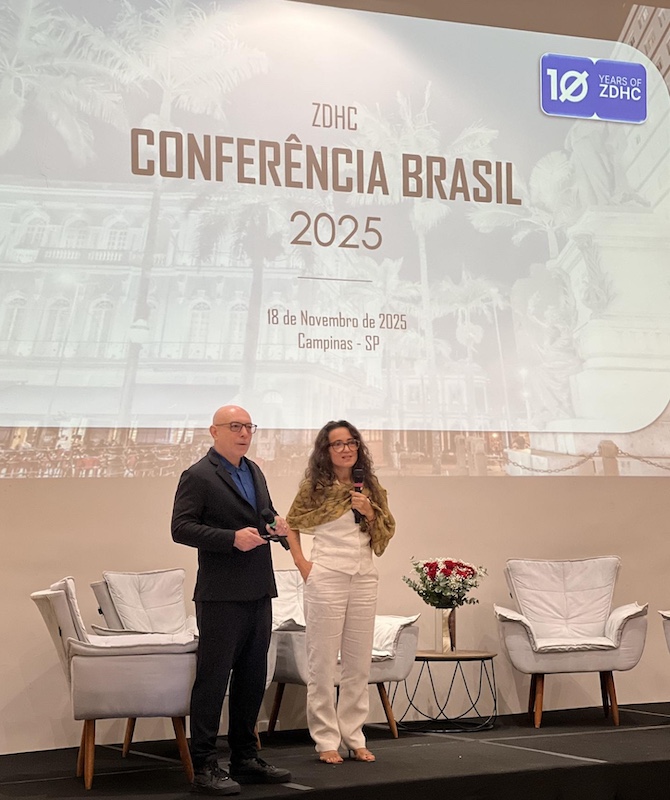Over the past few years, Brazil has become one of the most dynamic regions in the global textile and footwear value chain — and its rapid engagement with sustainable chemical management is a signal of something bigger. The sector isn’t just reacting to global expectations; it’s stepping forward to shape them.
ZDHC’s conference in Brazil on 18 November was one more step in this ongoing journey; an opportunity to deepen dialogue, strengthen alignment, and continue building the collaborative foundations the region has been developing over time.
A Region Ready to Lead
Brazil’s growing commitment to responsible chemical management is driven by three powerful shifts:
1. Rising market expectations
With global brands deepening their presence in Latin America, local suppliers are recognising that alignment with international chemical management requirements is no longer optional. There is a growing demand for validated, transparent data to demonstrate responsible production.
2. A strong domestic manufacturing base
Brazil’s textile and footwear sector is large, influential, and increasingly invested in strengthening its competitive edge. Safer chemistry is now seen as a strategic advantage — a way to improve product quality, reduce risk, and access new markets.
3. Expanding industry collaboration
Until recently, chemical management efforts were fragmented. But we are now seeing Brazilian stakeholders — mills, tanneries, brands, chemical formulators, and industry groups — coming together with a shared agenda and appetite for harmonisation.
This collaboration was on full display at the ZDHC Brazil conference.
Why Engagement in Brazil Is Growing Faster Than Before
The enthusiasm we see today stems from three accelerators:
- Practical needs — Manufacturing facilities want tools that help them meet brand requirements efficiently.
- Regulatory awareness — Policymakers and industry groups increasingly understand that safer chemistry is essential for environmental protection and global competitiveness.
- Regional champions — Leaders across Brazil are stepping up, hosting events, pushing adoption, and advocating for harmonised practices.
Brazil is no longer on the periphery of the global conversation. It’s becoming a central contributor.
What’s Next: Turning Energy into Long-Term Impact
As engagement expands, the next steps are already emerging:
- Strengthening local training and capacity-building
- Deepening collaboration between brands and suppliers
- Expanding the use of ZDHC platforms and data systems
- Supporting industry associations in aligning their programmes
- Building a long-term, Brazil-specific roadmap for implementation
This is how momentum becomes transformation.
A Moment Worth Recognising
Brazil’s growing engagement is not accidental — it is the result of committed people, strong partnerships, and a shared belief that safer chemistry is both possible and beneficial.
The progress we are witnessing is not just good for Brazil; it strengthens the entire global value chain.
As the region continues to mobilise, one thing is clear: Brazil is not just participating in the journey toward responsible chemical management — it is helping lead it.
